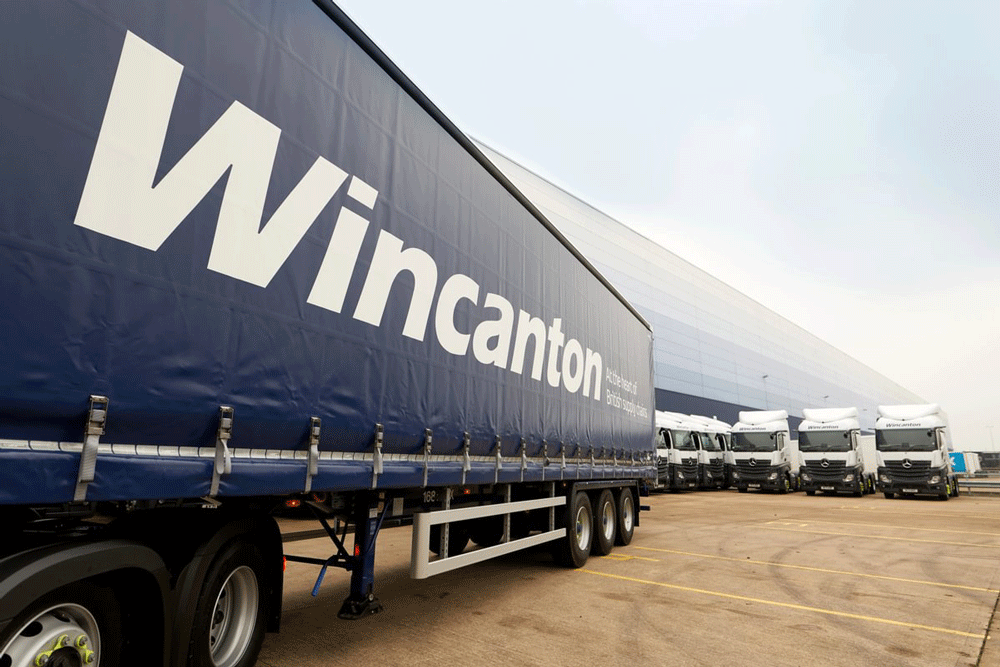What’s holding back decarbonisation progress?

Helen Flanagan, EyeQ product director at Wincanton, explores the challenges that logistics businesses face in reaching net zero, as well as the opportunities to overcome these.
In recent years, the scientific community, together with governments and organisations worldwide have come together to acknowledge the vital need to take action against climate change. It is something that cannot be ignored — especially given, earlier this year, for the first time, global warming exceeded 1.5C across an entire year, according to the EU’s climate service.
Due to the nature of the work it conducts, the logistics sector has an essential role to play when it comes to hitting environmental targets and reducing CO2 emissions. But while many understand this, our new research reveals that UK businesses aren’t making the progress they want in this area. In fact, over half (54 per cent) feel they will struggle to meet their net-zero goals.
The big problem is that the climate can’t wait.
With the pressure well and truly on for businesses to hit their CO2 targets, what are some of the challenges they face and what opportunities await them to confront these?
Cost pressures hold back progress
The good news is that sustainability remains a high priority for 81 per cent of organisations. But in this difficult economic climate where costs are rising and competing pressures are rife, there is a clear gap emerging between priorities and action.
One of the biggest barriers to CO2 reduction which became clear in the research, is the perceived risk of cost. Indeed, 80 per cent believe that reducing CO2 emissions in their logistics fleet means an increase in costs. As a result, 66 per cent have had to deprioritise hitting their net zero targets.
Significantly, however, over a third (37 per cent) of businesses have proven that reducing their CO2 emissions also reduces their costs, shining a spotlight on the critical difference between perception and proof when it comes to meeting environmental goals.
In terms of actionable steps to take, while it is true that some areas of change (such as replacing a fleet with electric HGVs) can incur significant cost, there is much which can be done without considerable investment. Indeed, some things can save a business money in the short-term.
Just one example of this is using technology that reviews load builds and route planning. This can ensure that the right vehicle is being used for each delivery, helping to reduce the amount of fresh air being transported around the UK logistics network due to empty space that can be redeployed. It can also significantly reduce the number of dead miles or wasted journeys carried out across a wide transport network, driving environmental, and financial, efficiency.
A look at alternative fuels
Looking ahead, the use of alternative fuels is progressing in the right direction, but widespread adoption of these is still years away.
For instance, while electric power is increasingly more common for light and medium-duty vehicles, with electric vans, motorbikes and cargo bikes readily seen on our roads, there are only 300 electric HGVs currently registered in the UK, and only one charging point, according to the Road Haulage Association (RHA).
Meanwhile, biofuels are being developed to provide sustainable alternatives to traditional fuels – particularly in sectors where electrification is more challenging, such as aviation and HGVs. These are still expensive to produce, however, and so are unlikely to dominate the fuel market any time soon.
Hydrogen is another option, with the UK aiming to become a global leader in hydrogen technology as part of its broader decarbonisation strategy to develop hydrogen production and refueling infrastructure.
While these are all good options, one of the most significant barriers at present, lies between the availability of alternative fuel vehicles and their viability and affordability. Which explains why, on average, supply chain decision makers believe that these vehicles will only become widely viable in five years.
Collaboration will be crucial to success
It’s clear that the focus needs to shift towards a more efficient and innovative logistics solution for businesses. But to really tackle the issues faced, they need to forge new partnerships and work collaboratively.
Collaboration has already proven itself as a prime solution with commercial and environmental benefits to organisations across the UK, with 65 per cent of businesses believing it is the key to the future success of the industry and will help to tackle a range of sector issues, reduce costs and help to meet CO2 targets. At the same time, 28 per cent say they are nervous about the difficulty in finding partners to work with, while the same number also worry about the lack of internal resources to manage collaboration projects.
Ultimately, collaboration is going to be the cornerstone of success if businesses are going to hit their net-zero targets on time. Working with logistics service providers can significantly increase your operational efficiency and improve your supply chain resilience – through access to a wide range of vehicles to suit your business needs and by helping you to scale up and down according to fluctuating market demand.
They can also provide you with the expertise and technology that would be difficult to match without substantial capital and the necessary procurement requirements.
Final thoughts
Sustainability is now a critical component of business strategy and operations, and the need for action can no longer be put on the back burner. And businesses don’t need to wait for alternative fuel HGVs or the infrastructure to support – there are solutions that are available now.
Working with a logistics service provider means businesses can have access to technology solutions that will ensure businesses can optimise to improve productivity, reduce operational costs and make the right steps to achieving net zero. Doing so will allow businesses to focus on the strategic decisions that are going to help them build long-term growth and success.






